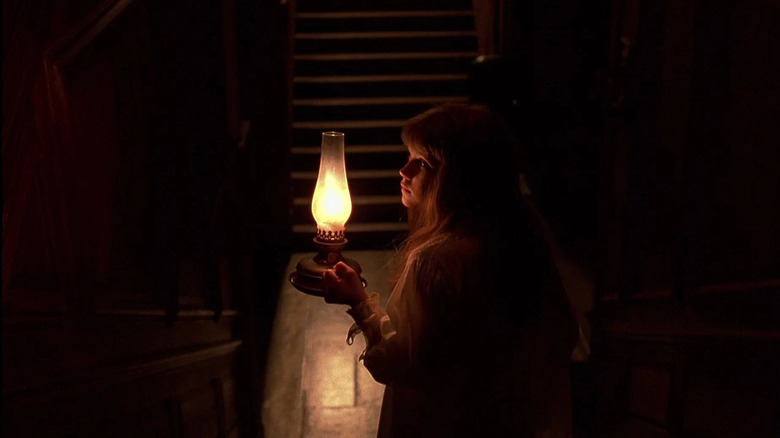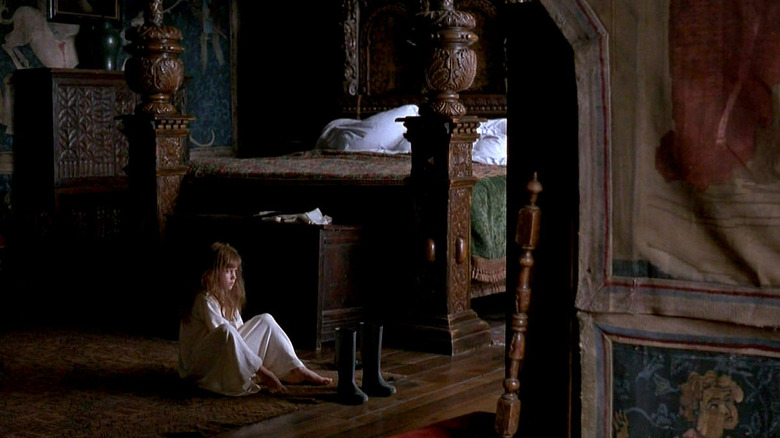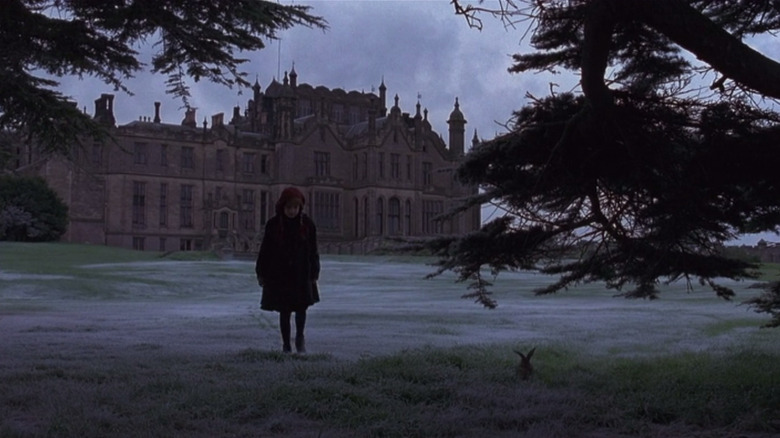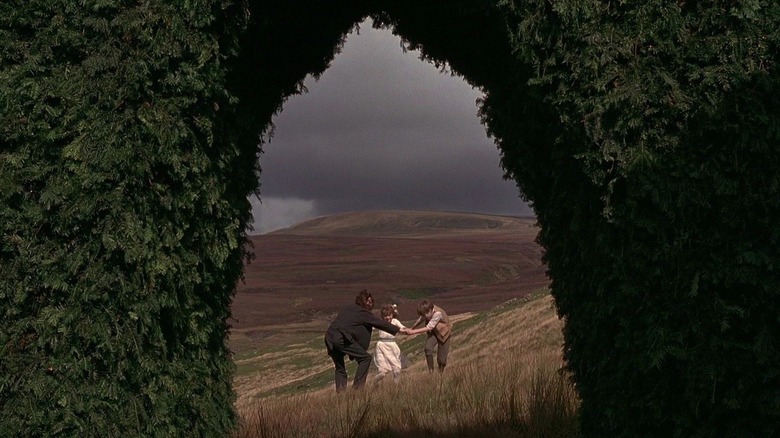The Daily Stream: The Secret Garden Taught A Generation How To Self-Soothe
(Welcome to The Daily Stream, an ongoing series in which the /Film team shares what they've been watching, why it's worth checking out, and where you can stream it.)
The Movie: "The Secret Garden" (1993)
Where You Can Stream It: HBO Max
The Pitch: Young Mary Lennox (Kate Maberly) is an orphan. She was born in British-occupied India, where she was raised by her exceptionally wealthy and thoroughly ineffectual parents who were killed during an earthquake. Mary was always doted on by servants, never wanting for anything ... except basic affection from her mom and dad. In the aftermath of their death, she's sent to live with her estranged uncle, Lord Archibald Craven (John Lynch), in his enormous mansion in the English countryside. The Yorkshire estate, Misselthwaite Manor, is dark and brooding, teeming with her family's long-held secrets of sorrow and loss.
After arriving, Mary is warned by the manor's stern housekeeper, Mrs. Medlock (Dame Maggie Smith), not to go exploring lest she find or disrupt her supposedly sickly cousin, Colin (Heydon Prowse). She's also told to fend for herself for the first time in her short 10 years. Eventually, she discovers mysterious passageways, hidden keys, and the titular secret garden that once belonged to her deceased aunt, her mother's twin sister.
Based on the 1911 novel of the same name by Frances Hodgson Burnett, "The Secret Garden" is a classic coming-of-age story about self-healing and recovery.
Why it's essential viewing
There's something truly magical about "The Secret Garden." Not unlike Gillian Armstrong's "Little Women," which would be released the following year, it's a deep and soulful adaptation of a classic that would transcend its categorization as a story for children (specifically little girls and young women) and actually embrace the source material's weight.
Adapted by Caroline Thompson ("Edward Scissorhands," "The Nightmare Before Christmas," and "The Addams Family") and directed by Agnieszka Holland, it's part children's story and part Gothic haunting. Parts of it genuinely scared me, though admittedly not in the same way as something like "The Changeling" (which I also watched as a kid ... somehow). Instead of terrifying specters drifting through the abandoned halls of Misselthwaite, the manor is haunted by the pain of the past. The peeling wallpaper, dust-covered trinkets, and forgotten rooms all tell the story of a past that was quite literally locked away because of the pain it carries. It's a tomb, and one that we're introduced to through the eyes of an orphaned 10-year-old girl who's never had a friend.
In that regard, I always related to Mary Lennox. True, I was never a Victorian orphan who was sent to live in the Yorkshire moors with her estranged uncle only to find out she had a cousin who was similarly neglected. But, I was alone a lot as a child. I had loving parents, I was encouraged to make friends with people, all good stuff, but I never quite got the hang of socializing. I was always a bit too intense, too severe with a strange sense of humor. I longed for connection in a profound way, so watching Mary's growth was a beautiful escape for me.
Insidious neglect
Mary and her cousin, Colin (Heydon Prowse), are two sides of the same coin — neglected children of affluent parents who either couldn't be bothered with them or were pained by their very existence. Colin's mother died in childbirth, and as such his father, Archibald, couldn't stand to be around him. He couldn't stand to be in their home after she died, locking it up as if you could just throw away the key to the most painful parts of your memory.
Like Mary, Colin was raised to think he was a nuisance, only he was treated as if he were physically disabled despite that not being the case. His physical neglect mirrors Mary's emotional neglect, in both cases resulting in two spoiled brats with no concept of how to socialize. But they also have no idea how to be happy because they were never raised with an example of joy or love. They were shoved away like so many hidden secrets, ignored and (literally) locked up. Where Colin was treated like a fragile glass doll too precious for the light of day, Mary was treated as if she were disposable. Unwanted, I believe, is the way she refers to herself.
The garden represents the heart of their family, and it's rotted with neglect. Overgrown, abandoned, and left to die, it festers until Mary comes along and shows it a bit of kindness. In so doing, she learns to give herself some grace and she starts to change. Over the course of the film, she develops into a precocious and adventurous little girl, albeit one who was forced to grow up far too quickly by virtue of circumstance.
Space to grow
However cheesy this may sound, "The Secret Garden" is an ode to self-soothing. It suggests that we're capable of healing ourselves, and that's an incredibly powerful message to teach children. Hell, it's an immensely important message many adults need to learn, too. We don't need permission to recover from trauma, and no one else is able to do that work for us but ourselves. Regardless of how we got here, it's our job to teach ourselves how to heal and to become better people in the process. Not perfect, that's impossible. But better is enough.
During the pandemic, I've had to do a lot of that myself. In the process, I planted a garden around our home. I planted bulbs in the fall, digging up dead tree stumps and root systems and making room for new life to grow. I (not-so-patiently) waited for the first buds to pop out of the earth in spring (hyacinths along with some crocuses and later tulips and dahlias), and I marveled as I watched new life grow from the seemingly desolate ground. Every time I work on it, I think of "The Secret Garden," and remember being a little girl who felt just as alone as Mary, who taught herself to heal.



